GATE Metallurgy Syllabus 2024 comprises seven sections, in which topics such as Mechanical Metallurgy, Engineering Mathematics and Physical Metallurgy are included.
Table of Contents
GATE Metallurgy syllabus 2025 is broadly divided into seven sections: Engineering Mathematics, Physical Metallurgy, Manufacturing Processes, Transport Phenomena and Rate Processes, Metallurgical Thermodynamics, Mineral Processing and Extractive Metallurgy, and Mechanical Metallurgy. It is a branch of science that studies the physical and chemical behaviour of metallic elements, intermetallic compounds and their mixture called alloys.
To study Metallurgy at the master's level, candidates must appear for competitive exams like the GATE exam 2025. To prepare for the exam, an understanding of the GATE Metallurgy syllabus and GATE exam pattern is crucial as it testifies to students' knowledge, skills and expertise in the discipline and their preparedness to facilitate research and work under unusual circumstances.
The following article covers the syllabus, subject-wise weightage and books for the GATE 2025 Metallurgical Engineering (MT) exam preparation.
GATE Metallurgy Syllabus 2025
The Metallurgical Engineering syllabus of GATE is divided into seven sections. The various topics and sub-topics from GATE metallurgy syllabus 2025 are provided below:
1. Engineering Mathematics Syllabus
This is a branch of applied mathematics concerning the application of maths to complex real-world problems & effectively combining mathematical theory and practical engineering.
The following are the various sub-topics in the GATE Metallurgy syllabus for Engineering Mathematics:
|
Topics |
Sub-topics |
|
Linear Algebra |
Matrices and Determinants, Systems of linear equations, Eigen values and Eigen vectors |
|
Calculus |
Limit, continuity and differentiability; Partial derivatives; Maxima and minima; Sequences and series; Test for convergence; Fourier series. |
|
Vector Calculus |
Gradient; Divergence and Curl; Line, Surface and volume integrals; Stokes, Gauss and Green's theorems |
|
Differential Equations |
Linear and non-linear first order ODEs; Higher order linear ODEs with constant coefficients; Cauchy's and Euler's equations; Laplace transforms; PDEs -Laplace, one dimensional heat and wave equations. |
|
Probability and Statistics |
Definitions of probability and sampling theorems, conditional probability, Mean, median, mode and standard deviation; Random variables; Poisson, normal and binomial distributions; Correlation and regression analysis. |
|
Numerical Methods |
Solutions of linear and non-linear (Bisection, Secant, Newton-Raphson methods) algebraic equations; integration by trapezoidal and Simpson's rule; single and multi-step methods for differential equations. |
Also Check: GATE Engineering Sciences Syllabus 2025
2. Metallurgical Thermodynamics Syllabus
Metallurgical Thermodynamics consists of two broad topics that are laws of thermodynamics and electrochemistry. Various sub-topics in the GATE Metallurgy syllabus for this section are given below:
|
Topics |
Sub-topics |
|
Laws of thermodynamics |
First law - energy conservation, Second law - entropy; Enthalpy, Gibbs and Helmholtz free energy; Maxwell's relations; Chemical potential; Applications to metallurgical systems, solutions, ideal and regular solutions; Gibbs phase rule, phase equilibria, binary phase diagram and lever rule, free-energy vs. composition diagrams; Equilibrium constant, Activity, Ellingham and phase stability diagrams; Thermodynamics of point defects, surfaces and interfaces, adsorption and segregation phenomena. |
|
Electrochemistry |
Single electrode potential, Electrochemical cells, Nernst equation, Potential-pH diagrams |
3. Transport Phenomena and Rate Processes Syllabus
Transport phenomena are all irreversible processes of a statistical nature stemming from the random continuous motion of molecules, mostly observed in fluids. The various topics in this subject of GATE Metallurgy syllabus are given as follows.
|
Topics |
Sub-topics |
|
Momentum transfer |
Concept of viscosity, shell balances, Bernoulli's equation, mechanical energy balance equation, flow past plane surfaces and through pipes. |
|
Heat transfer |
Conduction, Fourier's Law, 1-D steady state conduction |
|
Convection |
Heat transfer coefficient relations for forced convection |
|
Radiation |
Black body radiation, Stefan-Boltzman Law, Kirchhoff's Law |
|
Mass transfer |
Diffusion and Fick's laws, Mass transfer coefficients |
|
Dimensional analysis |
Buckingham Pi theorem, Significance of dimensionless numbers |
|
Basic laws of chemical kinetics |
First order reactions, reaction rate constant, Arrhenius relation, heterogeneous reactions, oxidation kinetics |
|
Electrochemical kinetics |
Polarization |
Also Check: GATE Architecture and Planning (AR) Syllabus 2025
4. Mineral Processing and Extractive Metallurgy Syllabus
As the name suggests, Mineral Processing and Extractive Metallurgy is a branch of metallurgical engineering and is concerned with the extraction of metals from their natural mineral deposits. Various topics on the subject are given below:
|
Topics |
Sub-topics |
|
Comminution techniques |
Size classification, Flotation, Gravity and other methods of mineral beneficiation; Agglomeration: sintering, pelletizing and briquetting |
|
Material and Energy balances in metallurgical processes |
Principles and processes for the extraction of non-ferrous metals - aluminum, copper and titanium |
|
Iron and steel making |
Material and heat balance in blast furnace; Structure and properties of slags and molten salts - basicity of slags - sulphide and phosphate capacity of slags; Production of metallurgical coke |
|
Other methods of iron making |
COREX, MIDRE |
|
Primary steel making |
Basic oxygen furnace, process dynamics, oxidation reactions, electric arc furnace |
|
Secondary steel making |
Ladle process - deoxidation, argon stirring, desulphurization, inclusion shape control, principles of degassing methods; Basics of stainless steel manufacturing |
|
Continuous Casting |
Fluid flow in the tundish and mould, heat transfer in the mould, segregation, inclusion control |
5. Physical Metallurgy Syllabus
The next section of the GATE Metallurgy syllabus is Physical Metallurgy. It focuses on the physical properties and structure of metals and alloys. Various topics on the subject are given below:
|
Topics |
Sub-topics |
|
Chemical Bonding |
Ionic, covalent, metallic, and secondary bonding in materials, Crystal structure of solids - metals and alloys, ionic and covalent solids, and polymers |
|
X-ray Diffraction |
Bragg's law, optical metallography, principles of SEM imagingCrystal Imperfections: Point, line and surface defects; Coherent, semi-coherent and incoherent interfaces |
|
Diffusion in solids |
Diffusion equation, steady state and error function solutions; Examples- homogenization and carburization; Kirkendall effect; Uphill diffusion; Atomic models for interstitial and substitutional diffusion; Pipe diffusion and grain boundary diffusion |
|
Phase transformation |
Driving force, Homogeneous and heterogeneous nucleation, growth kineticsSolidification in isomorphous, eutectic and peritectic systems, cast structures and macrosegregation, dendritic solidification and constitutional supercooling, coring and microsegregation |
|
Solid state transformations |
Precipitation, spinoidal decomposition, ordering, massive transformation, discontinuous precipitation, eutectoid transformation, diffusionless transformations; Precipitate coarsening, Gibbs-Thomson effect |
|
Principles of heat treatment of steels |
TTT and CCT diagrams; Surface hardening treatments; Recovery, recrystallization and grain growth; Heat treatment of cast iron and aluminium alloys |
|
Electronic |
Magnetic and optical properties of materials |
|
Basic forms of corrosion and its prevention |
|
Also Check: GATE Geomatics Engineering Syllabus 2025
6. Mechanical Metallurgy Syllabus
This branch of Metallurgy deals with the response of metals to applied forces. Various topics under Mechanical Metallurgy are as follows:
|
Topics |
Sub-topics |
|
Strain tensor and stress tensor |
Representation by Mohr's circle, elasticity, stiffness and compliance tensor, Yield criteria, Plastic deformation by slip and twinning |
|
Dislocation theory |
Edge, screw and mixed dislocations, source and multiplication of dislocations, stress fields around dislocations; Partial dislocations, dislocation interactions and reactions |
|
Strengthening mechanisms |
Work/strain hardening, strengthening due to grain boundaries, solid solution, precipitation and dispersion |
|
Fracture behaviour |
Griffith theory, linear elastic fracture mechanics, fracture toughness, fractography, ductile to brittle transition |
|
Fatigue |
Cyclic stress strain behaviour - low and high cycle fatigue, crack growth |
|
Mechanisms of high temperature deformation and failure |
creep and stress rupture, stress exponent and activation energy |
7. Manufacturing Processes Syllabus
This subject in the GATE Metallurgy syllabus involves the various methods and techniques of the manufacturing process of metals. Various subtopics are mentioned in the table below.
|
Topics |
Sub-topics |
|
Metal casting |
Mould design involving feeding, gating and rising, casting practices, casting defects |
|
Hot, warm and cold working of metals |
Metal forming - fundamentals of metal forming processes of rolling, forging, extrusion, wire drawing and sheet metal forming, defects in forming |
|
Metal joining |
Principles of soldering, brazing and welding, welding metallurgy, defects in welded joints in steels and aluminium alloys |
|
Powder metallurgy |
Production of powders, compaction and sintering |
|
Non-destructive Testing (NDT) |
Dye-penetrant, ultrasonic, radiography, eddy current, acoustic emission and magnetic particle inspection methods |
GATE Metallurgy Syllabus 2025: PDF Download
Using the GATE metallurgy syllabus for the GATE 2025 preparation is essential to learn about the topics covered, chapter-wise weightage and ensure that no topic is missed. To access the detailed GATE metallurgy syllabus for 2025, candidates can check the link provided in the table below:
|
GATE Metallurgy PDF |
Also Read: How to Balance Job and GATE Preparation?
GATE Metallurgical Engineering Syllabus 2025: Section-wise Weightage
For a better understanding of the syllabus and marks distribution, here is the section-wise weightage of the GATE metallurgical engineering:
|
Subject |
Weightage (%) |
|
General Aptitude |
15% |
|
Engineering Mathematics |
15% |
|
Metallurgical Thermodynamics |
10% |
|
Transport Phenomena and Rate Processes |
10% |
|
Mineral Processing and Extractive Metallurgy |
5% |
|
Physical Metallurgy |
20% |
|
Mechanical Metallurgy |
15% |
|
Manufacturing Processes |
10% |
Also Check: GATE Mining Engineering Syllabus 2025
Best Books for GATE Metallurgical Engineering
The following are the recommended books for GATE Metallurgy syllabus preparation. These are segregated according to the subject to ease your preparation:
|
Subject |
Books & Authors |
|
Engineering Mathematics |
Advanced Engineering Mathematics - RK Jain, SRK Iyengar |
|
|
Higher Engineering Mathematics - B.S. Grewal |
|
Metallurgical Thermodynamics |
Introduction to the Thermodynamics of Materials - David R. Gaskell |
|
Transport Phenomena and Rate Processes |
An Introduction to Transport Phenomena in Materials Engineering - David Gaskell |
|
Rate Processes in Metallurgy - Mohanty A.K |
|
|
Mineral Processing and Extractive Metallurgy |
Ironmaking And Steelmaking - Ahindra Ghosh And Amit Chatterjee |
|
Wills' Mineral Processing Technology - Barry A. Wills |
|
|
Physical Metallurgy |
Physical Metallurgy - Vijendra Singh |
|
Mechanical Metallurgy |
Mechanical Metallurgy - George E. Dieter |
|
Manufacturing Processes |
Manufacturing Technology - P.N. Rao |
Also Read: Avoid These 9 Common Mistakes in GATE Preparation 2025
GATE Metallurgical Engineering Exam Pattern
The GATE exam will be conducted online and the total time allotted for the exam is 3 hours. The GATE exam pattern is as follows:
- The GATE question paper is divided into 3 parts: General Aptitude, Engineering Mathematics and specific core subjects of the paper.
- There will be a total of 65 questions; 10 questions from the General aptitude section and 55 from Metallurgical Engineering Mathematics.
- Additionally, the questions will be of two types; MCQs and NAT.
- Nonetheless, the maximum number of questions in GATE 2025 would be from the core subjects.
GATE Metallurgical Engineering Marking Scheme
The GATE exam has negative markings for the MCQ questions. Hence, the candidates need to mark the correct answer. Therefore, the candidates who are willing to appear for the GATE preparation strategy.
The GATE Metallurgical Engineering marking scheme is as follows:
|
Subject |
Total No. Of Questions |
Questions Division |
Negative Marking |
|
General Aptitude |
10 Questions |
Question No: 1-55 Marks (1 Mark for Each Question) |
|
|
Question No: 6-1010 Marks (2 Marks for Each Question) |
|||
|
MT + Engineering Mathematics |
55 Questions |
Question No: 1-2525 Marks (1 Mark for Each Question) |
|
|
Question No: 26- 5560 Marks (2 Marks for Each Question) |
Also Read: GATE Qualifying Marks 2025

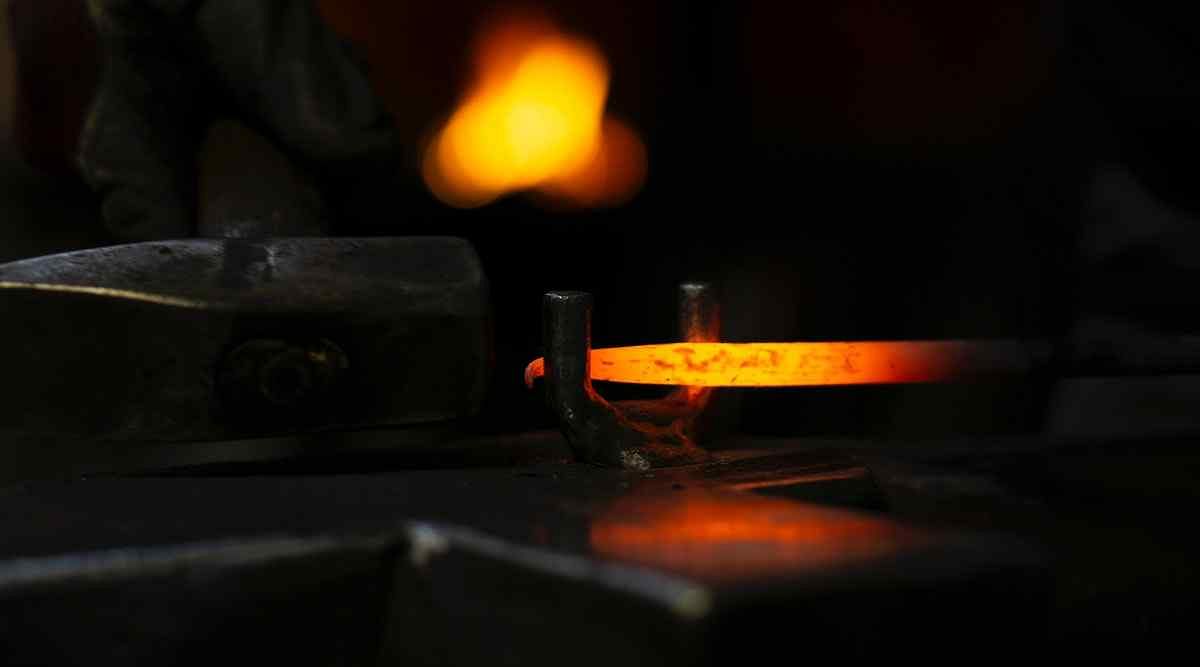
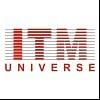





![Indian Institute of Technology, [IIT] Bombay](https://media.getmyuni.com/azure/college-image/small/indian-institute-of-technology-iit-bombay.jpg)

![Indian Institute of Technology, [IIT] Kanpur](https://media.getmyuni.com/azure/college-image/small/indian-institute-of-technology-iit-kanpur.jpg)
![Indian Institute of Technology, [IIT] Kharagpur](https://media.getmyuni.com/azure/college-image/small/indian-institute-of-technology-iit-kharagpur.jpg)
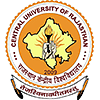





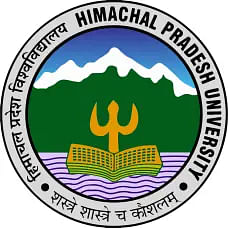








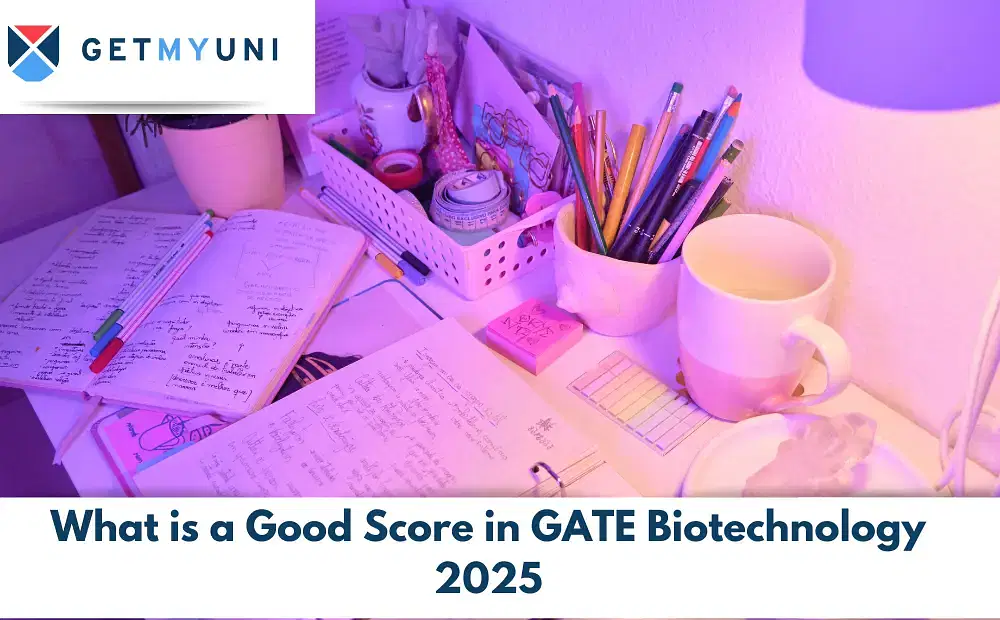

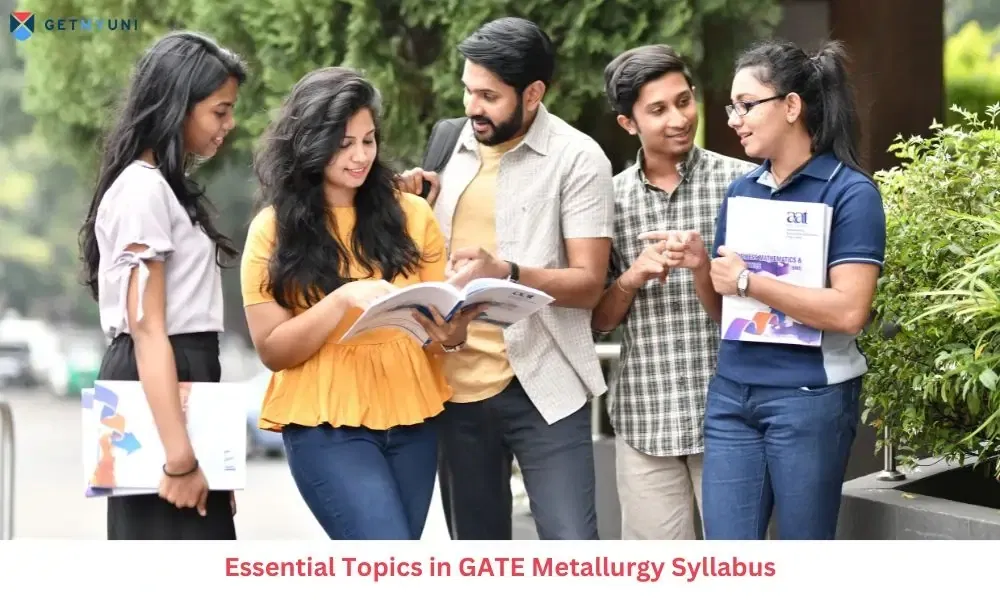




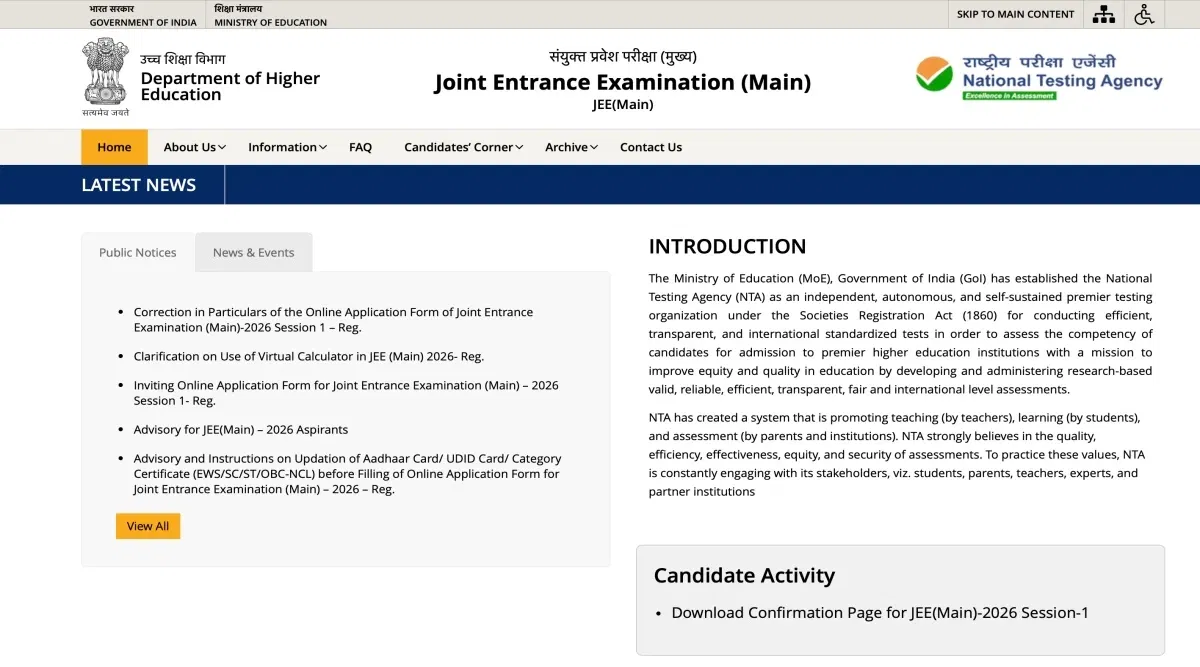



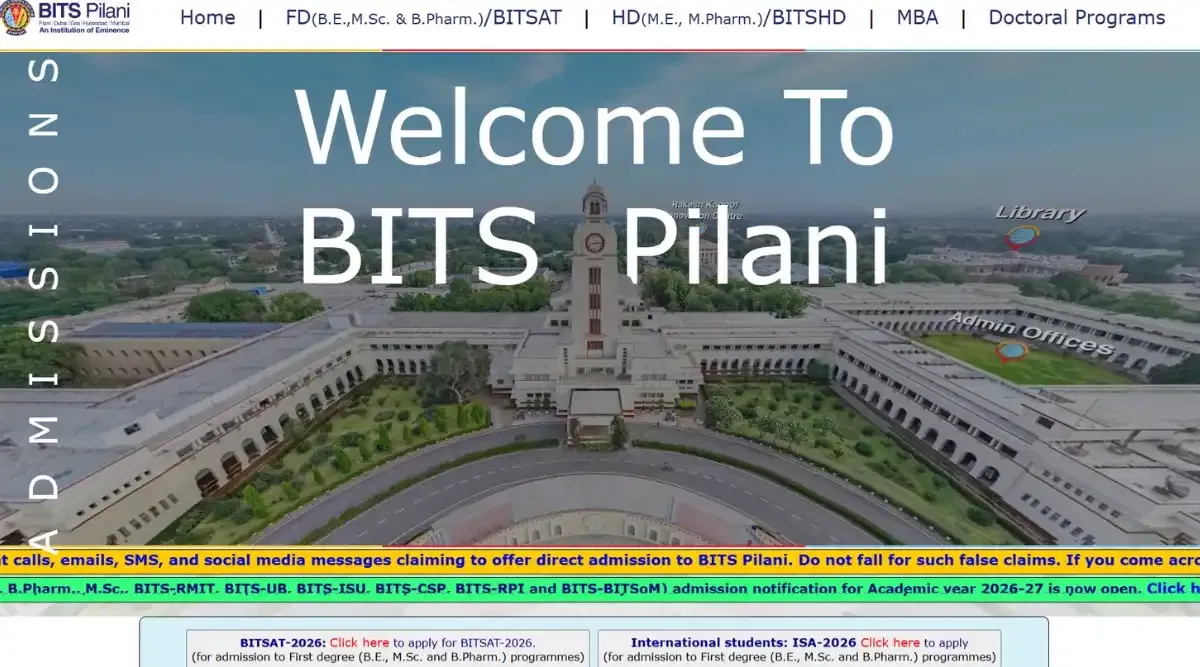


POST YOUR COMMENT